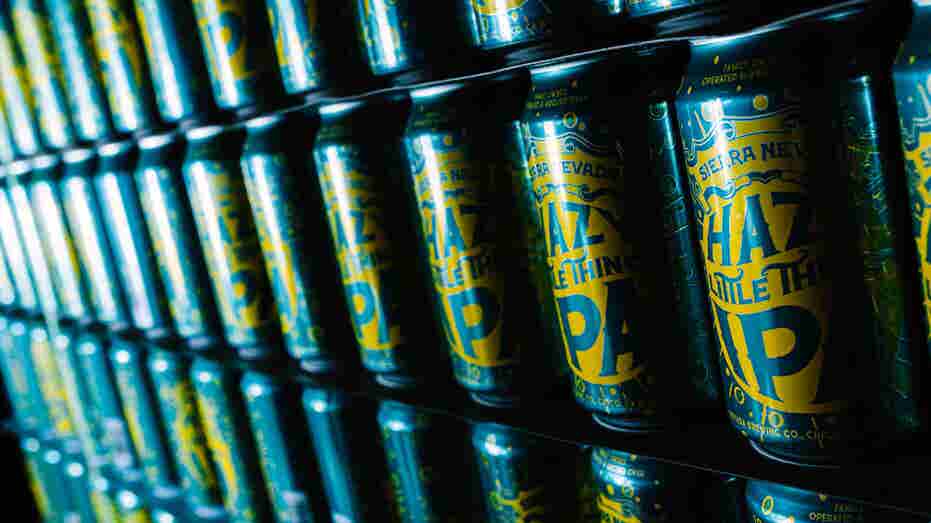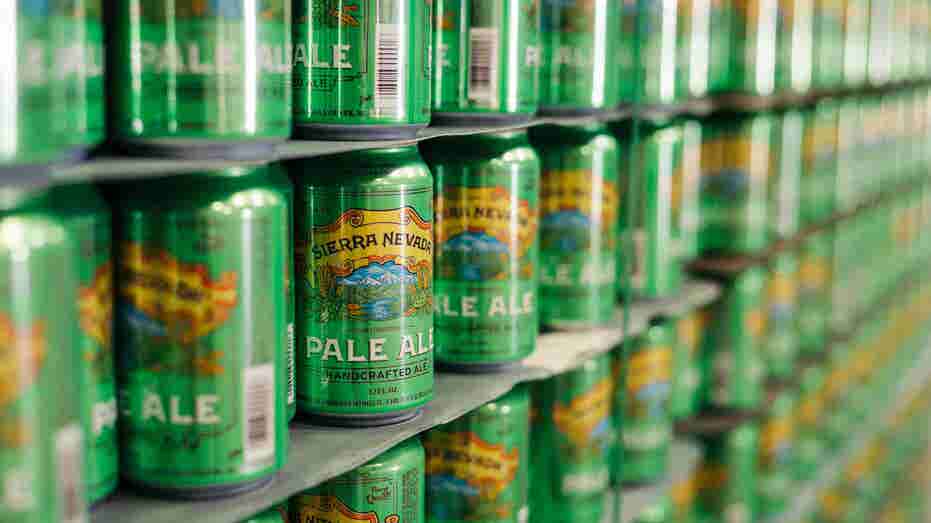Aluminum can shortage in US has breweries feeling the effects
The shortage of cans has been building up for a number of years, but pandemic lifestyle trends have only exacerbated the recent growth in demand
A nationwide shortage of aluminum cans has sent breweries into a frenzy.
Between the coronavirus pandemic, the surge in off-premise sales and more people buying beer at liquor or grocery stores in bulk, many breweries are dealing with a can crunch. Industry insiders predict the shortage will top 10 billion cans in the U.S. by the end of the year.
CORONAVIRUS LEADS TO BOOZE BOOM AS AMERICANS STAY HOME
Some breweries are expecting to run out of inventory as near as the holiday season. The Brooklyn Brewery, one of New York’s largest breweries with taps at bars all over the world, has been relying on its inventory to fulfill retail orders. Yet, with no supply coming in over the next few months to replenish the current stock, the inventory is likely to run dry just in time for the annual peak.
“We are going into a holiday season, which is one of the most important seasons for us, at a big risk of having empty shelves at retail,” Eric Ottoway, Brooklyn Brewery general manager and co-owner, told FOX Business. “And that's a big problem.”
The shortage of cans has been building up for a number of years but pandemic lifestyle trends have only exacerbated the recent growth in demand.
CORONAVIRUS PANDEMIC POSES A NEW CHALLENGE TO US ECONOMY: A COIN SHORTAGE
When Covid hit, convenience and portability became top priorities for alcoholic beverages, which sent many people stocking up and hoarding cans due to their lighter weight and smaller volume.
On-premise markets also took on more cans upon reopenings. In fear of facing another sudden-notice closure, restaurants and bars opened less than half as many taps as they normally would to prevent any potential losses. In light of uncertainty, canned beverages have instead made for a safer bet, allowing businesses to meet demand for to-go sales, as well as align with preservation mechanisms.
"There are usually some seasonal restraints and occasionally there are market changes, but I have never seen something like this current shortage before," Robin Gregory, director of communications at Sierra Nevada Brewing, told FOX Business. "It's been a major issue."
Even before the pandemic, breweries, can packagers and distributors and manufacturing plants have been stretched thin as aluminum cans gained recognition as the superior beverage format. Over the decade, craft brewers gradually moved away from the bottle fad to embrace the freshness and sustainability that cans allow. Unlike bottles, aluminum cans limit exposure to both light and oxygen, keeping the liquid inside fresh and flavorful for longer.
The hard seltzer boom only further crowded the marketspace and added to the accretion of demand for cans.
READY-TO-DRINK, CANNED COCKTAILS BOOMING WITH BACARDI
Prior to and during the pandemic, the amount of new products are being disproportionately introduced in cans compared with only one-third of all beverage products a few years ago, according to Thomas Fischer, vice president of investor relations and corporate affairs at Crown Holdings. Now, the amount of available capacity has been pushed to its limits, dismantling supply chains.
As a result of unprecedented growth in North America, Crown Holdings, one of the largest maker of food and beverage cans, has been forced to temporarily import cans from a number of regions around the world in order to satisfy the current demand. The company is also investing $600 million in capital to expand its capacity units.
Berlin Packaging, the world’s largest hybrid packaging supplier, has been forced to rethink planning strategies with its partners and consumers with extended supplier lead times.
“It was tight in the first quarter of 2020 but come second quarter, we really saw the impact of the pandemic,” Brian Butler, senior director of supply chain team at Berlin Packaging, told FOX Business. “That’s when we started to see companies really leaning in towards aluminum-based products.”

(Credit: Sierra Nevada)
Sierra Nevada, a craft brewery based in California, has encountered what is known as a bullwhip effect, where rapid change in consumer behavior causes exponentially exaggerated effects through the supply chain. The pantry stocking that took place in March and April caught distributors off guard, which has caused distributors to pump up their orders and forecasts in the face of uncertainties. As a result, suppliers like breweries scramble to catch up with larger orders, ultimately yielding a tremendous demand and straining supply on manufacturers.

(Credit: Sierra Nevada)
CORONAVIRUS QUARANTINE SENDS ONLINE ALCOHOL DELIVERY SALES SURGING
Cans are not the only issue that threaten the brew industry. Lids, which are manufactured separately, have also seen a shortage.
Interboro Spirits & Ales, a distributor of beer and spirits in the Northeast, is struggling with a scarcity of lids, which has made it difficult to produce its beer products.
For many craft brewers, new product plans and designs have also been postponed as backlogs jeopardize stakes. Prior to Covid, lead times for introducing a new can have increased from about eight weeks to 24 weeks, according to Brooklyn Brewery’s Ottoway.
“Now that same lead time still exists but the problem now is you don’t even know if you’re going to get what you ordered,” Ottoway said. “If you’re launching a new product, the risk is that you have all your marketing and partner plans laid out, and you don’t get those cans. It’s a pretty tricky time to even operate if you can’t even plan for the future.”




















